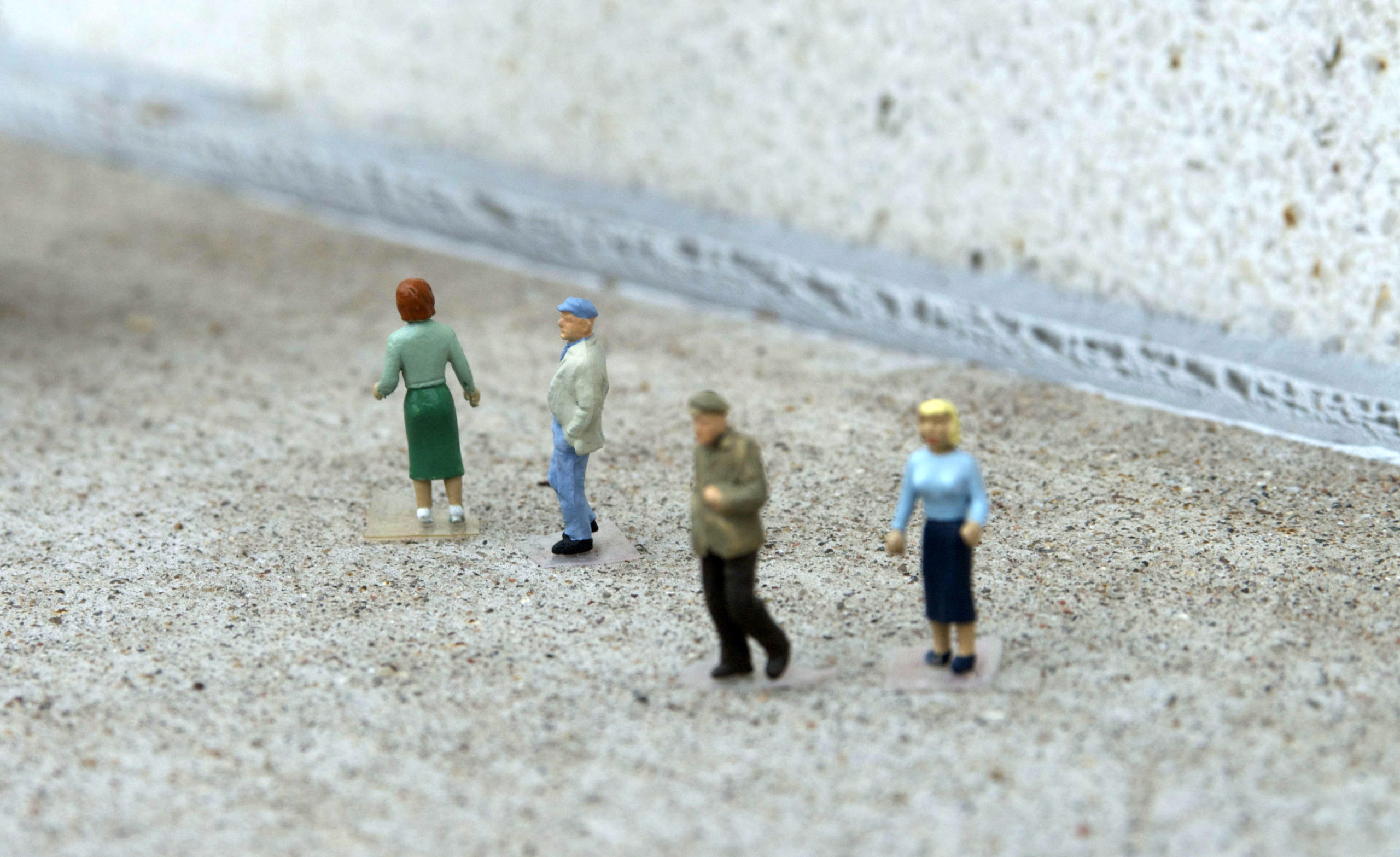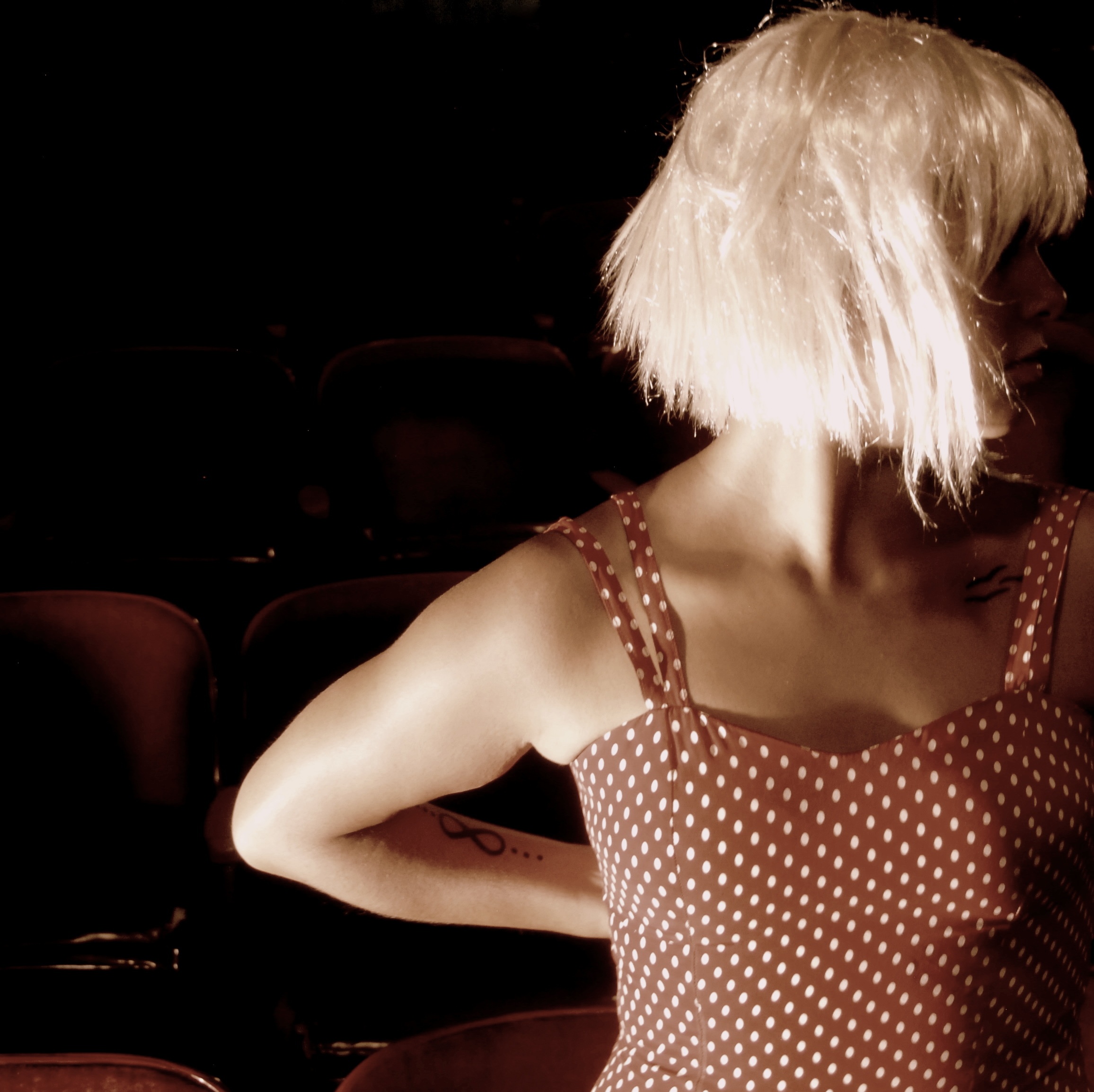Intoxicating Disturbances
Lightsey Darst reflects on two performances by relative newcomers to the Twin Cities dance scene: Taja Will ("we are not platonic, unfortunately") and Angharad Davies ("Work Party").


HERE’S WHAT I’M WONDERING: Why is it that, sometimes, when you remember a performance, what you remember is not the polished surface or its sturdy framework of coordination and control, but the moments when the surface fell apart to reveal some inner void, as if a sinkhole had opened at your feet?
Let me start from the beginning. I’m thinking of two recent performances at the Bryant-Lake Bowl, Taja Will‘s we are not platonic, unfortunately, and Angharad Davies’s Work Party. Will and Davies have both come to Minneapolis relatively recently (Will just after college, Davies because her partner started graduate school here), but both artists have already scoped the scene and made good connections; it’s obvious that if they stick around, they’ll be artists to watch. As for their work, I’m a bit at a loss how to describe it — which is as it should be: if new artists don’t confuse our categories, they aren’t really new.
we are not platonic, unfortunately burlesques the performer-audience relation, that “I love you/I need you/look at me/I don’t like the way you’re looking at me” cluster which provides inspiration for so many shows about showbiz. Will is a phenomenally talented performer, the kind for whom her mastery, and even your perception of her mastery, is not the main event. What she’s after is connection. Looking at Will is like opening the door to a fire: she glows, she feeds off the attention. When she tosses off a ’20s-style tease-song, complete with growls and silky glides, like something out of Chicago, it’s not even about her singing, which is so good I can’t see why she isn’t also a lounge star. It’s about you being good to her, you falling in love with her a little bit or a lot, however wide she can get that door to swing. And being this sort of performer, it’s no wonder Will wants to explore the wonderful/toxic/transformative/insupportable feedback loop of our relation with her, even if this kind of content is more familiar on the Broadway stage than in a hip postmodern Minneapolis hangout.
Davies explores similarly unexpected content: workplace relations. As much time as people spend at work, surprisingly little art addresses the work life. Perhaps we’ve all bought the bromide that we are not what we do for a living (even when we spend more time working than doing anything else), or maybe the typical splay of artists’ lives makes them forget how the other half lives. Not Davies. Security follows a couple of security guards as they chat about their weekends, sit, drink nasty coffee (you can almost see the instant creamer in their squinched faces), flirt, bitch (“Does anyone tell you anything? No one tells me anything!”), and sometimes work (“What was that?” as they look around, suddenly on alert). Team Build seems to take place at one of those awful all-day retreats/conferences/morale boosters. Wearing t-shirts bearing their names, performers go through dumb team-building exercises (i.e. in a “heightened state,” the coworkers try to find each other, using “all of your senses,” which means echo-locating until they run into each other), and successory-style dance (stomping, clapping, chanting).
Both of these shows work as comedies, by which I mean that you’re laughing most of the time you’re watching them. In her performance, Will works the BLB’s cabaret feel for all it’s worth, even inviting audience members on stage to execute tasks, which they do gamely, while Will murmurs, “you’re beautiful,” in her fluid alto. Really, what’s more fun than watching ordinary people try to follow strange directions? “Now, do something to impress me,” Will proposes, and these intrepid audience members try to do so, doing yoga poses, jumping jacks, high kicks. Her costumes are funny — lime green square-dance petticoat, gold moon boots, “100% dancer” tank top, a gold jacket that must have starred in some ’80s rap video. She executes a series of “sexy poses” — most overdone, some verging on Molly Shannon’s Superstar territory — while an announcer (Elliott Durko Lynch) counts them off (“71, 72, 73…. 74…. 75-76-77”). In my favorite bit, she shimmies while holding a note, making a bumpy-road sound completely at odds with the sexy move.
______________________________________________________
Despite how funny these shows are to watch, they don’t make me smile in retrospect like most comedies do. Instead, they trouble me, make me link idolatry and applause, and wonder about what exactly we feed when we watch.
______________________________________________________
Davies’s Security works the pedestrian/dance line, too. Davies and Alex Grant do the dance-n-stop, moving in a sustained, out-of-time dance fashion, then suddenly reverting to ordinariness. Repeated and exaggerated, their gestures go haywire: a simple smoothing of the pants becomes a maniac cleansing, an “Out, out, damned spot!” Davies isn’t above a sight gag: Hearing a noise behind them, the two turn slowly, unholster and unsheathe — a Bic and a chapstick. Work Party is so funny, and executed with such conviction and split-second timing by the cast (Jaime Carrera, Davies, Grant, and Taryn Griggs), that I would have gone for the rewind button if I could have. It’s hard to relay much of the humor effectively here — like so much physical comedy, it’s a matter of gesture, timing, character, not easily translated to words. But let’s take something simple, the little step and tap game that begins the piece: Everyone marches around in tight little paces, tapping when they cross paths. The game is fun to watch in the first place, but it’s the way they do it that cracks me up: Griggs violently pulls herself up and taps, as if she’s been thrown into reverse; Grant is shovel-mouthed, ultra-serious; Carrera looks as if he wants to start something; and Davies moves in a startle, as if she’s about to flunk this test, but badly wants to pass.
And yet, despite how funny these shows are to watch, they don’t make me smile in retrospect like most comedies do. With we are not platonic, the reason for this is more obvious. Take the bit in which Will clings to the stage’s back stairs while the disco ball spins and the announcer raves (“This is unbelievable! If I’ve seen this before I can’t remember it!”): It doesn’t take bat ears to get the bitter edge in this joke. Or there’s “Plan X,” the non-joke that ends the show: Will repeats “I totally love you” a few times, then over and over, like a broken robot, recording her voice until she’s got a loop of need that sounds like angry bees. Against this background, she throws a dance tantrum, flying about, every so often presenting herself, arms spread wide, shouting “Taja Will!” above the track, like a circus announcer.
I don’t know what’s going on here — whether Will’s presenting the psychosis of the star, or whether she thinks everyone really wants to shout his or her own name at top volume. (If it’s the latter, I have to question her knowledge of human psychology.) But it doesn’t matter. The effect is the thing, and this sequence effectively gives me the willies, as Will turns into a cross between Glenn Close in Fatal Attraction and that otter I saw at Marineland, the one that went on doing the same trick over and over and over. Or, take the moment when Will drops a line about working as a stripper to research this show. Again, I don’t know what she intends or whether she’s even telling the truth, but the line disturbs me — not because I disapprove of stripping, but because that, too, suggests a door open to a yawning inferno of need. Altogether, Will’s we are not platonic, unfortunately troubles me, makes me link idolatry and applause, makes me wonder about what exactly we feed when we watch.
With Davies’s Work Party, the serious undertow of the humor is less obvious, but still present. Perhaps, it’s because the comedy is physical and therefore fleeting that I can’t really remember it later; at any rate, what I’m left with is something that generates a lot of laughs during the show, but later doesn’t feel funny at all: inappropriate longing. Mostly, it’s Davies herself who shows this. Her face hollows into a soul-sucking hunger while the object of her affections looks elsewhere. The expression is so intense that were this show a drama, you’d expect it to end in a murder-suicide. Here, Davies gets at the inescapable falsity of the workplace, how bad humans are at being neutral, how impossible it is to leave your emotions at home — and perhaps how inevitable it is that emotions will out. The show ends with a moment of bad touch, in which two coworkers sneak their hands into two other coworkers’ laps. “What are you doing?” ask the molested, to which the molesters respond, “Shh.”
It’s a weird thing, everyone laughing as the Trojan horse of the content of these shows slips in. Or, perhaps I should say it’s clever, not weird. Isn’t this how cabaret works: One hand seduces and disarms you, while the other plunges its dart? Intoxicating disturbance, addictive hurt — whatever it is, let’s have more of it.
______________________________________________________
Related events:
Taja Will’s we are not platonic, unfortunately was on stage at the Bryant Lake Bowl on November 4 and 12.
Work Party, choreographed by Angharad Davies, began last weekend and will continue this Friday, November 19 at 7 pm at the Bryant Lake Bowl in Minneapolis.
______________________________________________________
About the author: Originally from Tallahassee, Lightsey Darst is a poet, dance writer, and adjunct instructor at various Twin Cities colleges. Her manuscript Find the Girl has just been published by Coffee House; she has also been awarded a 2007 NEA Fellowship. She hosts the writing salon, “The Works.”